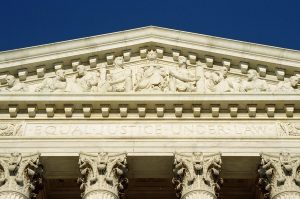On June 6, the Supreme Judicial Court of Massachusetts released an opinion of considerable importance to petroleum retailers in Massachusetts. In Peterborough Oil Company, LLC v. Department of Environmental Protection, the Court interpreted the term “Oil” as used in the Massachusetts Department of Environmental Protection’s (DEP) regulation (the “Oil exemption”) implementing the Massachusetts Oil and Hazardous Materials Release Prevention Act. The Act is in many ways the state’s counterpart to the federal Superfund or Comprehensive Environmental Response, Compensation, and Liability Act of 1980 (CERCLA). The Court ruled that the term “Oil,” as defined in Section 2 of the Act and interpreted by the DEP, is not subject to the kind of “petroleum exclusion” that is part of CERCLA. Indeed, under CERCLA, leaded gasoline, the substance at issue here, would likely have been exempted by CERCLA from most cleanup requirements.
DOL Letter Was A Final Agency Action Subject to Judicial Review
On June 3, 2016, the U.S. Court of Appeals for the DC Circuit, in Rhea Lana, Inc., et al., v. Department of Labor, reversed the district court’s holding that a warning letter sent to the plaintiff by the Wage and Hour Division of the Department of Labor (DOL) was not a “final action” for purposes of review under the Administrative Procedure Act (APA). The decision is significant because it appears to presage the use of “final agency action” as a means of seeking pre-enforcement judicial review in the federal courts for a host of governmental communications (orders, letters, formal notifications, etc.).
Twice Is Not As Nice: Plaintiff’s Counsel Ordered to Pay Defendant For Unreasonable and Vexatious Filing
On June 1, 2016, the U.S. Court of Appeals for the Seventh Circuit issued an interesting ruling in Beatrice Boyer, et al., v. BNSF Railway Company dba Burlington Northern and Santa Fe Railway Company. It ordered plaintiffs’ counsel to compensate BNSF almost $35,000. The Court of Appeals’ ruling was premised on it concluding:
“We believe the record makes clear that the plaintiffs’ counsel unreasonably and vexatiously multiplied the proceedings by filing [a second] suit in Arkansas, which had absolutely no connection to this case” after its initial complaint filed in Wisconsin was dismissed.
Court Has Inherent Authority to Supervise CSSP, Including Sanctioning Attorneys for Ethical Violations and Misconduct
On June 2, 2016, the U.S. Court of Appeals for the Fifth Circuit addressed another matter of alleged attorney misconduct in a Deepwater Horizon claims case and the District Court’s authority to impose sanctions for misconduct. This controversy also involves former FBI Director Louis Freeh, who was designated a Special Master by the court when allegations of impropriety surfaced involving Andry Lerner, LLC, a firm that represents claimants in the “Court-Supervised Settlement Program” (CSSP). The Fifth Circuit was asked to review the District Court’s sanction of attorneys after determining that the lawyers violated the Louisiana Rules of Professional Conduct (LRPC).
DC Circuit: NRC Rule Is Not a Licensing Action and Generic EIS Satisfies NEPA
In 2014, the NRC promulgated a “Continued Storage Rule” followed by the Nuclear Regulatory Commission’s (NRC) issuance of a Generic Environmental Impact Statement on Decommissioning of Nuclear Facilities (NUREG-0586) to support the Rule. On June 3, 2016, the U.S. Court of Appeals for the DC Circuit, in State of New York, et al., v. Nuclear Regulatory Commission, et al., rejected the arguments made by “several states, a Native American Community, and numerous environmental organizations” objecting to the Rule and generic EIS concerning the “continued, and possibly indefinite storage” of spent nuclear fuel generated by nuclear power plants operating in the United States.
Vermont’s Generalized Injury Claims from MTBE Contamination Time-Barred
On May 27, 2016, Vermont’s Supreme Court, in State of Vermont v. Atlantic Richfield Company, et al., ruled that the State of Vermont’s “generalized injury” claims “to state waters as a whole due to groundwater contamination from gasoline additives” are not exempted from Vermont’s six-year statute of limitations for civil claims. The Court affirmed the trial courts dismissal of the State’s claims as time-barred, and confirmed that “the trial court properly interpreted [12 Vt. Stat. Ann.] § 462 as limited to claims of adverse possession” and, in addition, recently enacted 10 Vt. Stat. Ann. § 1390 did not “create a new cause of action that was retroactively enforceable, [empowering] the State to apply the statute to injuries discovered more than six years prior to its complaint.”
Congress’ Directive to Service to Reinstate Captive-Bred Exemption Upheld
Since the celebrated Supreme Court decision of Tennessee Valley Authority v. Hill, which for a time sidetracked the  construction of the Tellico Dam, the Endangered Species Act (ESA) has been recognized as a potentially powerful impediment to the construction of many projects. However, as demonstrated by the Congressional response to that case, the Congress can be persuaded to make exceptions from time to time, rare as that may be. The recent Friends of the Animals ruling by the U.S. Court of Appeals for the DC Circuit is also illustrative of this power of the Congress.
construction of the Tellico Dam, the Endangered Species Act (ESA) has been recognized as a potentially powerful impediment to the construction of many projects. However, as demonstrated by the Congressional response to that case, the Congress can be persuaded to make exceptions from time to time, rare as that may be. The recent Friends of the Animals ruling by the U.S. Court of Appeals for the DC Circuit is also illustrative of this power of the Congress.
Colorado Act Provides Immunity for Avalanche-related Injuries
Construing the Colorado Ski Safety Act of 1979, on May 31, the Colorado Supreme Court, in Fleury v. IntraWest Winter Park Operations Corp., held that a fatal avalanche that occurred within the bounds of the Winter Park ski resort was an “inherent danger and risk of skiing” and the Act precludes skiers or their families from bringing claims against the operators for any resulting injuries. The Act is part of Title 33 of the Colorado Revised Code governing Wildlife and Parks and Outdoor Recreation. The Act and the protections provided by it illustrate once more the fact that state legislatures often make public policy decisions like this which balance the importance of a particular industry to a state against the risks that the public will knowingly take in engaging in these activities.
Complexities of Administrative State Lead to Win for Regulated Community
Caring Hearts Personal Home Serv., Inc. v. Burwell, a U.S. Court of Appeals for the Tenth Circuit Medicare reimbursement case, describes the challenges confronting federal administrative agencies and the regulated community at a time when the demands on and the growth of government are somewhat astonishing. Judge Gorsuch begins his opinion as follows:
“Executive agencies today are permitted not only to enforce legislation but to revise and reshape it through the exercise of so-called ‘delegated’ legislative authority… The number of formal rules these agencies have issued thanks to their delegated authority has grown so exuberantly it’s hard to keep up. The Code of Federal Regulations now clocks in at over 175,000 pages. And no one seems sure how many more hundreds of thousands (or maybe millions) of pages of less formal or ‘sub-regulatory’ policy manuals, directives, and the like might be found floating around these days. For some, all this delegated legislative activity by the executive branch raises interesting questions about the separation of powers… For others, it raises troubling questions about due process and fair notice—questions like whether and how people can be fairly expected to keep pace with and conform their conduct to all of this churning and changing ‘law’… But what happens if we reach the point where even these legislating agencies don’t know what their own ‘law’ is?”
Federal Courts Get a Say in CWA Jurisdictional Determinations by Army Corps of Engineers
Many construction projects are subject to the regulatory requirements of the Clean Water Act (CWA), including the  determination whether an earth-moving operation is covered by a “dredge and fill” permits administered by the U.S. Army Corps of Engineers. If there is a question about the applicability of the CWA to a project, the of Corps of Engineers will determine, on its own initiative or following a request for a determination by the project sponsor, whether or not the project is subject to the CWA. However, the administrative procedures employed by the Corps of Engineers to decide whether the project is covered can often be so costly and time-consuming that the project may be abandoned. Now, in the case of the U.S. Amy Corps of Engineers v. Hawkes Co., Inc., decided May 31, the Supreme Court has acknowledged some of these costs, and the serious legal consequences that attend these proceedings, as it has ruled that in appropriate cases, a controversial jurisdictional determination by Corps officials that a project is covered by the CWA is subject to judicial review by the federal courts.
determination whether an earth-moving operation is covered by a “dredge and fill” permits administered by the U.S. Army Corps of Engineers. If there is a question about the applicability of the CWA to a project, the of Corps of Engineers will determine, on its own initiative or following a request for a determination by the project sponsor, whether or not the project is subject to the CWA. However, the administrative procedures employed by the Corps of Engineers to decide whether the project is covered can often be so costly and time-consuming that the project may be abandoned. Now, in the case of the U.S. Amy Corps of Engineers v. Hawkes Co., Inc., decided May 31, the Supreme Court has acknowledged some of these costs, and the serious legal consequences that attend these proceedings, as it has ruled that in appropriate cases, a controversial jurisdictional determination by Corps officials that a project is covered by the CWA is subject to judicial review by the federal courts.




